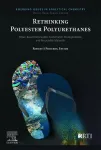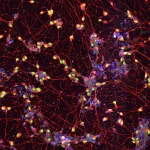One of the projects supported by PCNA will include a correlative study that analyzes data from a previous Phase 1 clinical trial conducted by a Research Team funded through the SU2C Convergence program and led by researchers at Memorial Sloan Kettering Cancer Center (MSK). The team launched their Phase 1 clinical trial in 2019 to test a personalized Messenger RNA (mRNA) vaccine for pancreatic cancer, utilizing the same technology that produced the vaccines for COVID-19. The vaccine developed for the trial was tailored to recognize the cancer cells present in each trial participant’s pancreatic cancer tumor and stimulate the body’s immune system to fight the cancer. Half of the trial participants experienced the desired immune response and those people’s cancer did not return during the course of the trial.
“We are delighted to be collaborating with Stand Up To Cancer to fund the future of this ground-breaking research. The outcome of this study could represent a real turning point for pancreatic cancer,” said Michelle Capobianco, president and CEO, Pancreatic Cancer North America. “In the past 40 years survival rates have improved slightly, but the five-year survival rate is still under 10%. This is not meaningful progress, and patients cannot rely on hope alone to live through this deadly disease.”
PCNA’s support will enable the team to address critical unanswered questions from their Phase 1 trial regarding why the vaccine works for some patients and not others, utilizing data and around 400 patient samples collected during the trial.
“We are thankful for this funding from Stand Up To Cancer and Pancreatic Cancer North America, which we hope will help our productive transdisciplinary Convergence Research Team identify the best ways to better help more pancreatic cancer patients,” said Vinod Balachandran, MD, surgeon scientist, and team co-leader. “The information from this correlative study is essential to inform future vaccine design as we get ready to launch our Phase 2 clinical trial.” said Benjamin Greenbaum, PhD, computational biologist, and team co-leader.
“With pancreatic cancer being so deadly, funding is critically needed to find better therapies; we are grateful to Pancreatic Cancer North America for joining us in this essential effort,” said Russell Chew, president and CEO of Stand Up To Cancer. “Pancreatic cancer research is a significant focus for SU2C, accounting for over 23% of our entire cancer portfolio. We’re thrilled to continue this work with the funding of the correlative study that will inform this team’s exciting research.”
The SU2C Convergence program brings together biological, physical, and computer sciences to better understand cancer biology in order to more quickly tailor treatments for individual cancer patients, including the previous Phase 1 clinical trial conducted by the SU2C–Lustgarten Foundation Pancreatic Cancer Convergence Research Team. This team received funding in 2018 as a part of the Pancreatic Cancer Collective.
# # #
SU2C Media Contact: PCNA Media Contact:
Mirabai Vogt-James Beth Ruby
mjames@su2c.org bruby@pancreaticcancerna.org
ABOUT STAND UP TO CANCER
Stand Up To Cancer® (SU2C) raises funds to accelerate the pace of research to get new therapies to patients quickly and save lives now. SU2C is a 501(c)(3) charitable organization and was initially launched as a division of the Entertainment Industry Foundation. Established in 2008 by media and entertainment leaders, SU2C utilizes these communities’ resources to engage the public in supporting a new, collaborative model of cancer research, to increase awareness about cancer prevention, and to highlight progress being made in the fight against the disease. As of April 2023, more than 3,000 scientists representing more than 210 institutions are involved in SU2C-funded research projects.
Under the direction of our Scientific Advisory Committee, led by Nobel laureate Phillip A. Sharp, Ph.D., SU2C conducts rigorous competitive review processes to identify the best research proposals to recommend for funding, oversee grants administration, and ensure collaboration across research programs.
Current members of the SU2C Founders and Advisors Committee (FAC) include Katie Couric, Sherry Lansing, Kathleen Lobb, Lisa Paulsen, Rusty Robertson, Sue Schwartz, Pamela Oas Williams, and Ellen Ziffren. The late Laura Ziskin and the late Noreen Fraser are also co-founders. Russell Chew serves as SU2C’s president and CEO.
For more information, visit StandUpToCancer.org, Instagram, TikTok, Twitter, Facebook, and YouTube.
ABOUT PANCREATIC CANCER NORTH AMERICA
Pancreatic Cancer North America (formally PancONE Network Inc.) aims to disrupt the traditional approach to discovery in pancreatic cancer by bringing together multiple sectors, innovations, and novel methods to drive real change. Pancreatic cancer is known as the world’s toughest cancer. Over the past 50 years, we’ve seen only marginal improvements in survival and yet it remains one of the most overlooked and underfunded cancers. Pancreatic Cancer North America, together with our partners at Pancreatic Cancer Canada, have decided that enough is enough. We’ve raised enough sympathy – it is time to raise survival rates.
For more information, visit PancreaticcancerNA.org, Instagram, Twitter and Facebook.
ABOUT THE PANCREATIC CANCER COLLECTIVE
The Pancreatic Cancer Collective is an initiative of Lustgarten Foundation and Stand Up To Cancer to improve pancreatic cancer patient outcomes. Together, these leading cancer research organizations have funded 31 projects and are attracting new collaborators; employing big data to improve diagnosis of pancreatic cancer; finding new treatments for pancreatic cancer; and supporting the next generation of pancreatic cancer investigators. Engaging thought leaders, researchers, institutions, and companies, the Collective is innovating and accelerating research on the edge of science. For more information, visit PancreaticCancerCollective.org.
END





